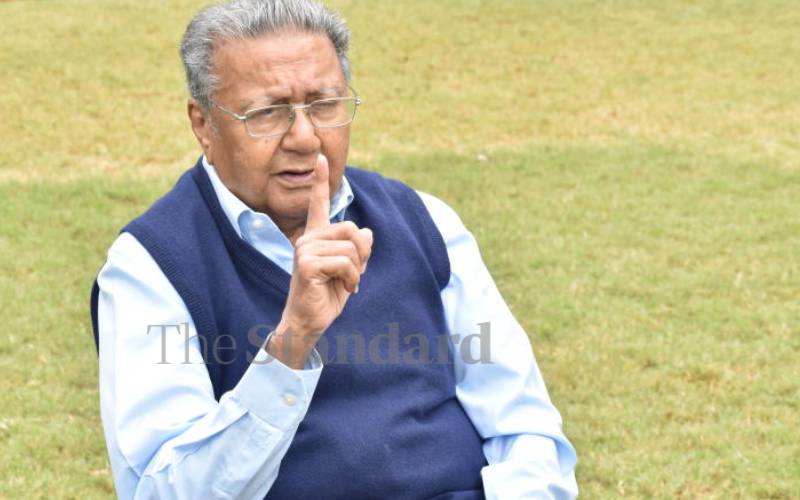×
The Standard e-Paper
Join Thousands Daily

Manu Chandaria retired at age 90. He is now 93 years old.
During his long business life, he was known for his stewardship of Comcraft Group, a multinational manufacturer of steel and aluminium, and the Chandaria Foundation, a philanthropic entity.